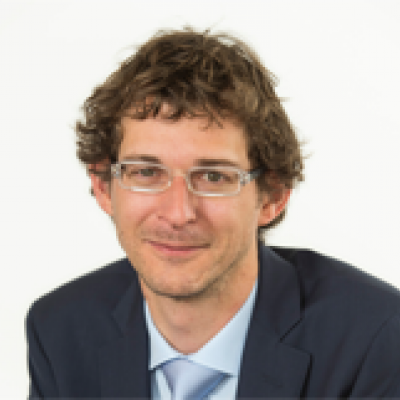Dr David Church Clinician Scientist Fellow
Organisation: University of Oxford
- Clinician Scientist Fellowship
- 4

About me
David is a Clinical Scientist Fellow and a medical doctor specialising in Oncology at Oxford University.
He wants to improve patient care through high-quality, applied laboratory and clinical research, and is particularly interested in translating novel research findings into clinical practice.
David's project for his fellowship focuses on cancers of the womb and bowel. He wants to discover whether outcomes are better for patients whose cancers have a particular genetic mutation. He says knowing this could refine treatment decisions and avoid unnecessary treatment and its side effects for patients.
Cancer is a disease of uncontrolled growth of cells within the body. It is caused largely by changes in the DNA sequence called mutations. While some genetic mutations are associated with a better or worse prognosis, confirming this is challenging, and at present relatively few mutations are used to guide treatment for patients in the clinic.
'So far we’ve found that roughly 1 in 40 bowel cancers and 1 in 12 womb cancers there is a particular genetic mutation which means that copying of DNA is highly error-prone,' says David. 'It appears that these patients have better outcomes, but we need to confirm this and to determine why – do these cancers just behave better or are they more susceptible to treatment? By filling in this gap we can learn how best to treat future patients.'
Every year in the UK and across Europe hundreds of thousands of patients are diagnosed with cancers of the bowel or womb. They are generally treated with surgery and then chemotherapy or radiotherapy if the cancer has features suggesting a higher risk of recurrence. Many patients who have these treatments receive no benefit from them, while all are at risk of side effects.
'We have shown that womb cancers with this mutation appear more aggressive. So the general reaction might be to add chemotherapy treatment after surgery, but if we’re right and these cancers have good prognosis there’s no need to use this treatment and we can save many women a pretty awful six months. Knowing exactly what does and doesn’t work for these groups of people will mean precise treatment, fewer risks and avoiding side effects. The aim is to deliver personalised therapy, rather than a one size fits all approach.'
Over the course of the five-year project, David will study tumours from hundreds of patients treated in clinical trials to see whether his preliminary data are correct. This includes studying patients who do not receive further treatment after surgery. He will also be carrying out laboratory experiments assessing whether the effects of drugs and radiation are different in cancers with this mutation. He aims to translate his research findings into clinical practice to benefit patients.
Work with us
We look for talented and passionate individuals as everyone at the Health Foundation has an important role to play.
View current vacanciesThe Q community
Q is an initiative connecting people with improvement expertise across the UK.
Find out more

